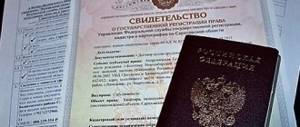In what cases can a notary's deposit be used to fulfill financial obligations?
The creditor is incapacitated and has no representative
For example:
- 1. The court decides whether the creditor is declared incompetent or the creditor’s representative does not have documents confirming his powers
- 2. A minor child does not have a legal representative
The creditor evades acceptance of performance or there is another delay on his part
For example:
- 1. The loan agreement provides for high interest rates and the lender does not want to accept performance
- 2. According to the agreement, property is pledged and the lender is interested in receiving the property, and not in repaying the loan
- 3. The lessor does not accept payment under the agreement for further termination of the agreement
The creditor or the person authorized by him to accept performance is absent from the place where the obligation must be performed
For example:
- 1. The creditor under the agreement changed the details and did not inform the debtor
- 2. The creditor assigned his rights under the agreement and did not inform the debtor - The creditor changed his place of residence
There is obviously no certainty as to who is the creditor of the obligation
For example:
- 1. In connection with a dispute in court
- 2. In the event of the death of the creditor, since within six months from the date of death the circle of his heirs is determined
- 3. The bank’s license has been revoked and the right to receive payments under loan agreements has not yet been transferred to the DIA (Deposit Insurance Agency)
Other cases provided for by law
For example:
- 1. When carrying out the procedure for forced repurchase of shares (Federal Law “On Joint-Stock Companies”)
- 2. During the bankruptcy procedure of an organization (Federal Law “On Insolvency (Bankruptcy)”)
Calculations in a mortgage loan transaction
According to current legislation, depositing money into a notary deposit is possible both in cash and non-cash form, but there are certain restrictions for legal entities. The most common is a non-cash transfer of funds to an account specified by a notary specialist - this method is suitable for both legal entities and individuals.
One of the options for replenishing an existing account is cash. As a rule, this operation is carried out through the cash desk by the borrower/buyer himself, receiving documentary confirmation (receipt). As confirmation of the notary's acceptance of the transferred funds, he issues a certificate on company letterhead, certified by his signature and seal.
Cashless payments
Non-cash payments can be convenient for legal entities because, according to the Directive of the Central Bank of the Russian Federation, the maximum amount for cash payments in this case will be 60,000 rubles, and making large amounts in small payments is considered a violation of the law. But with non-cash transfers, there are no restrictions on the amount of the amount, both for individuals and legal entities.
Depending on the creditor bank, money for the apartment can be transferred to the Seller either in cash (via a safe deposit box, as a general rule), or transferred to the Seller’s account by bank transfer (here the bank personally negotiates with the Seller on the terms of the transfer).
In the case of a safe deposit box, the creditor bank may require additional papers from the Seller to access the safe deposit box. For example, an extract from the Unified State Register, a receipt for receiving money for a sold apartment, a receipt from Rosreestr about the acceptance of a package of documents for registration, etc.
By using this mechanism for transferring funds, the parties receive a number of advantages. In this article, we will compare the deposit with two other popular methods of settlement of transactions: a deposit box in a bank and a non-cash transfer of funds.
- Minimum costs. The deposit service with a notary will cost much less than renting a safe deposit box. And if we are talking about a transaction with large sums, then a bank transfer can also be very expensive due to the high commission.
- No risks for both parties. The notary acts as an independent third party who determines compliance with the terms of the transfer of funds. Therefore, payment for the transaction is made only if all conditions are met. This approach helps prevent fraudulent transactions.
- Save time. As a rule, all independent methods of transferring money are time-consuming. In particular, to transfer money through a safe deposit box, you need to go to the bank, sign a lease agreement for the safe deposit box, and deposit money into it, which takes a lot of time. If the operation takes place through a notary, the signing of the transaction can be synchronized with the transfer of money.
- Guaranteed delivery of money to the seller. The buyer, when transferring funds to the notary, can rest assured that he has fully fulfilled his obligations. The notary is guaranteed to transfer the funds to the seller.
Therefore, a deposit is a more profitable and convenient way to transfer payment under an agreement.
Many people are interested in how a notary carries out operations with the funds transferred to him. The law prohibits storing material assets in a notary office, since this office is not an institution designed for the safe storage of material assets. Therefore, this issue is resolved as follows:
To store the funds received for settlements between the parties to the obligation, notaries have special bank accounts - public deposit accounts, where these funds are transferred. Storing the notary's own funds in these accounts is prohibited; they are opened solely for the purpose of providing the opportunity for settlements between third parties
The funds on deposit legally belong to the person who placed them on this deposit. However, according to Article 88 of the Fundamentals of the Legislation of the Russian Federation on notaries, a refund is made only with the consent of the recipient or by a court decision. In this article we do not touch upon the topic of judicial return of funds from the deposit, but as for consent, there may be two options:
- If the conditions for the return are specified in advance in the contract, and the parties have signed it, the counterparty is considered a priori to agree to the return if the specified conditions are met.
- If the parties have entered into an additional agreement on the return of funds. For example, if a decision was made to terminate the transaction.
In any case, it is important to ensure in advance that the contract provides for a legal mechanism for canceling the transaction and returning the deposit to the owner of the money
How to settle a transaction
The parties to the transaction must first agree on the settlement of the transaction using the notary's deposit
- 1. under a real estate purchase and sale agreement
- 2. when selling shares in the authorized capital of business companies
- 3. to pay for intermediary services
- 4. under an agreement for the provision of services or performance of work
- 5. when concluding interconnected chain transactions
- 6. under other agreements
Contact a notary to conclude an agreement and make payments for the transaction at the place of fulfillment of the obligation
Thus, certification of agreements on the alienation of real estate objects is carried out by a notary of the constituent entity of the Russian Federation on whose territory the real estate is located.
Conclude an agreement on the procedure for making payments through a notary deposit
The parties to the transaction go together to the notary to enter into an agreement, or only the buyer can come to the notary to deposit money.
Electronic registration
The electronic registration mechanism appeared at the beginning of 2020. Sberbank was the first to offer it, and initially electronic registration could only be used when purchasing apartments in new buildings. Today, the purchase/sale of secondary housing is also registered using this scheme. Electronic registration allows you to complete a transaction without visiting the office of Rosreestr or the MFC.
Transaction documents are sent electronically from the office of a bank or developer company (which has an agreement with Sberbank). After Rosreestr has registered the transfer of ownership, the buyer receives a purchase and sale agreement and an extract from the Unified State Register of Real Estate with an electronic mark on state registration by email.
The cost of electronic registration in Sberbank is 5 thousand rubles, plus the Secure Payment System – another 2 thousand rubles. In addition to Sberbank, the following banks in Yekaterinburg intend to launch an electronic registration system soon: VTB, Raiffeisenbank, Absolutbank.
Tags: deposit, apartment, purchase
« Previous entry
What can be provided for in an agreement on the procedure for making payments through a notary deposit
The procedure and timing for the issuance (transfer) of funds from the notary’s deposit to the creditor
For example:
- 1. After state registration of the transfer of ownership
- 2. After submitting the acceptance certificate
- 3. After providing a certificate confirming the absence of registered persons in the apartment
- 4. No later than a certain date
- 5. Upon occurrence of other conditions agreed upon by the parties
- 6. A minor child does not have a legal representative
Methods of depositing, transferring, returning funds from the deposit
For example:
- 1. In cash, if the recipient is an individual (not an organization), in this case the notary issues a check or order to the bank for payment
- 2. By non-cash method, for which you need to provide the account number and bank details to the notary
The procedure and timing for the debtor (buyer) to deposit funds into the notary’s deposit
For example:
- 1. Funds are deposited on the day of signing the contract
- 2. Funds are deposited after signing the agreement and before submitting documents for state registration of the transfer of ownership
- 3. Upon occurrence of other conditions agreed upon by the parties
The procedure and terms for the return of funds from the notary's deposit to the person who deposited the money (debtor, buyer)
For example:
- 1. Receiving a refusal from Rosreestr to state registration of the transfer of ownership when selling real estate
- 2. Receiving a refusal from the tax service when making changes to the Unified State Register of Legal Entities regarding a change of participants when selling a share in the authorized capital, etc.
Deposit features
When purchasing real estate, the payment method depends on whether the transaction takes place on the primary or secondary market.
If on the primary market, then the buyer transfers funds to the current account of the developer company. With such a secure transaction, no problems arise. In the secondary real estate market, financial fraud and cases of fraud are possible, since payments are made between two individuals.
When paying in cash, funds can be transferred to the agency in front of witnesses, receiving a receipt in return.
We invite you to familiarize yourself with the First Steps to Selling an Apartment
In such a transaction, there are several safe ways to transfer funds:
- Through a letter of credit. The client asks the banking institution to become an intermediary in the transaction. After the seller presents the documents, the agreed amount of money is transferred to him.
- Through a safe deposit box. The parties rent a safe deposit box at the bank, the buyer takes out a deposit, which he gives access to after the transaction is completed and the apartment is sold. Operations are carried out under the control of a bank employee.
- Transfer of money and registration of the transaction through a notarial deposit.
The first two methods are reliable, but they are considered expensive and time-consuming, as they require preparation for the seller and buyer, as well as the signing of a large number of documents. Therefore, the third method is gaining more and more popularity, since the cost of this service from a notary is much lower.
To settle through a notary deposit, the parties must agree on the following points:
- payment will be made using a notary deposit through the transfer of funds from the buyer to the seller;
- the buyer deposits the full amount to pay for the transaction to the notary's deposit;
- the buyer can withdraw money from the deposit when the property rights have already been re-registered by a notary and the transaction is closed;
- the buyer can return the money from the deposit only with the consent of the seller, or if the ownership rights have not been re-registered within the allotted period.
Algorithm of actions
How to receive money from a notary's deposit? Carrying out mutual settlements through a deposit in 2020 does not require any complex actions.
When making financial settlements with a notary, the process of using the deposit looks like this:
- The purchase and sale agreement is drawn up by a notary, where a clause regarding settlements through a notarial deposit is included.
- The seller and buyer sign a notarized agreement with detailed terms for the transfer of money: terms of mutual settlement, specific amount, terms.
- After signing the agreement, funds are deposited through the bank, in cash or by bank transfer.
- The seller is engaged in the re-registration of property rights and, upon completion of the procedure, provides the notary with supporting documents and an extract from Rosreestr.
- The notary checks the documents and transfers funds to the seller’s account.
- The seller receives a funds transfer certificate, which replaces the receipt from the seller, and the transaction is considered completed.
This method is the safest and most inexpensive, therefore it is gaining popularity among buyers and sellers of real estate. Also, the Notary Deposit allows for mutual settlements between creditors and debtors.
Return of money to the debtor is allowed only with an appropriate court decision or with the consent of the creditor.
Service cost
How much does it cost to deposit money with a notary? The activities of a notary are fixed by law, as is payment through a notary’s deposit.
The cost of services consists of:
- State fees for carrying out legal operations, its size is regulated by law and is the same in all regions of the Russian Federation.
- Additional notary services (drawing up contracts, etc.). Separately determined by each notary.
When notarizing a transaction, the fee for using the deposit is 1,500 rubles. For a transaction not certified by a notary, the tariff is 0.5% of the transaction amount, but not less than 1,000 rubles.
The payment of the state duty is made by the person who requested the deposit. The agreement may provide for a different procedure, for example, when the other party will have to compensate for the costs and expenses of notary services.
In what cases can a notary deposit be used?
In order to deposit funds with a notary, certain conditions must be met.
Contact a notary at the place of fulfillment of the obligation
In accordance with the law, the place of fulfillment of the obligation is:
- 1. under the obligation to transfer a land plot, building, structure or other real estate - the location of such property;
- 2. for an obligation to transfer goods or other property that involves its transportation - the place where the property is handed over to the first carrier for delivery to the creditor;
- 3. for a monetary obligation to pay cash - the place of residence of the creditor at the time the obligation arose or, if the creditor is a legal entity, its location at the time the obligation arose;
- 4. for a monetary obligation to pay non-cash funds - the location of the bank (its branch, division) of the servicing creditor, unless otherwise provided by law;
- 5. for all other obligations - the place of residence of the debtor or, if the debtor is a legal entity, its location.
The place of fulfillment of the obligation can be determined by the agreement, for example, under a contract for the sale of real estate located in one constituent entity of the Russian Federation, the place of settlement may be specified in another constituent entity of the Russian Federation.
Indicate the existence of grounds for applying for a notary deposit
If the debtor simply does not want to meet with the creditor who is ready to accept execution, then the notary has no right to accept money as a deposit. To accept funds as a notary's deposit, the debtor addresses the notary with an application in which he indicates his data, the creditor's data, if known to him, and the circumstances (grounds) in connection with which it is impossible to fulfill the monetary obligation. The notary does not check the grounds for the occurrence of a monetary obligation, but it is advisable to present such documents to the notary in order to correctly draw up the application. After accepting the debtor’s application, the notary accepts the money as deposit and notifies the creditor about this, and also issues the debtor a certificate confirming the acceptance of the money as deposit.









